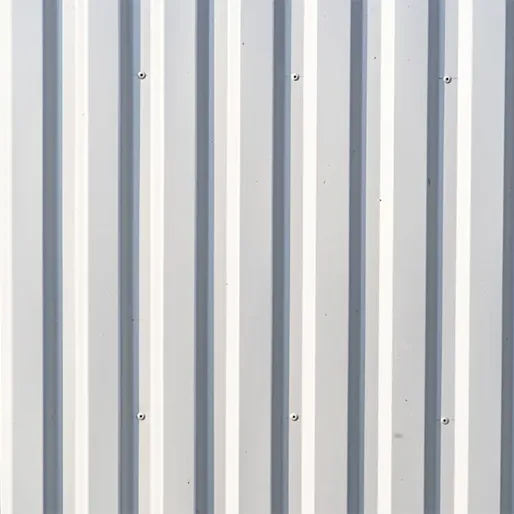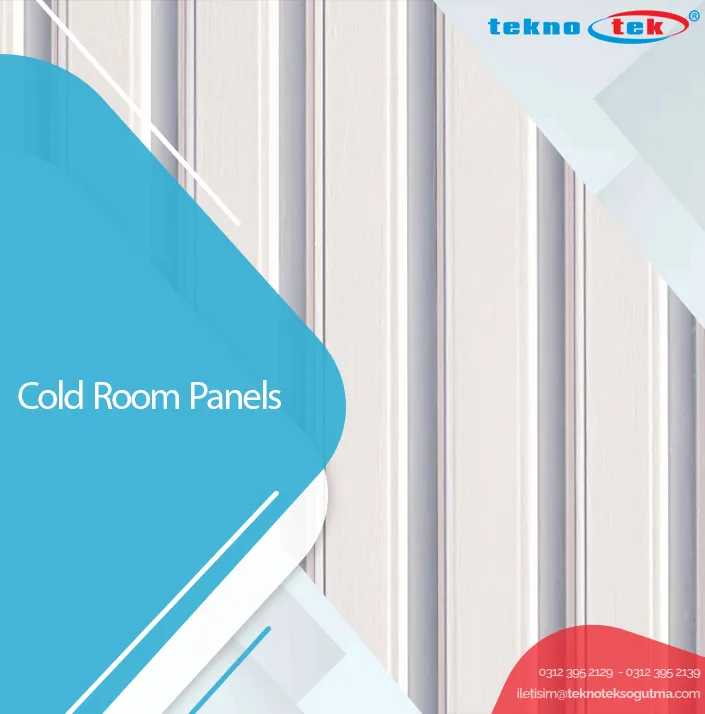Cold room panel is one of the most widely used thermal insulation components across various industries. It is utilized in many areas, from industrial facilities to food storage units. The panel system maintains the internal temperature balance and minimizes the effects of external environmental factors. Models produced with polyurethane or rock wool filling offer significant advantages in terms of hygiene and energy efficiency. With easy installation and customizable dimensions, it can adapt to a wide range of projects.
Cold room panel systems not only ensure precise temperature control but also provide sustainable storage solutions due to their durable structure. The galvanized or stainless steel surfaces of the panels are highly resistant to moisture and corrosion. Their sound insulation capability adds another layer of value to the system. Each panel is equipped with special locking mechanisms that minimize energy loss. With these features, cold room systems play a vital role in maintaining food safety and supporting operational efficiency.
The main advantages of cold room panels are as follows:
- Thermal insulation: Maintains internal temperature and increases energy efficiency.
- Hygienic surfaces: Features smooth coatings that do not retain bacteria, ensuring ease of cleaning.
- Durability: Highly resistant to moisture, impact, and corrosion.
- Modular structure: Enables fast assembly and can be easily dismantled and reinstalled when needed.
Long lifespan: Made from high-quality materials, allowing years of use without performance loss.
Cold Room Panel Price
The most important factors determining cold room panel price ranges are the quality of the materials used in production, panel thickness, filling type, and assembly system. These panels are used in cold storage rooms and are not merely insulation materials but also structural components that determine the system’s performance.
A well-selected cold air panel allows the desired temperature to be maintained, minimizes energy loss, and reduces operating costs. The internal filling of these panels is usually polyurethane or rock wool. Polyurethane panels are known for their high thermal insulation, while rock wool panels are preferred for their fire resistance.
The type and quality of the material used on the panel’s outer surface are also crucial in determining the price. Accordingly, galvanized, painted sheet, or stainless steel coatings offer different levels of protection.
In addition, there are differences between wall panels, ceiling panels, and floor panels in terms of size, durability, and workmanship. Therefore, each section should be evaluated separately in the pricing process. To enhance insulation performance, businesses often prefer panels with locking systems. These airtight systems allow the internal temperature to remain stable.
In cold room installations, all cooling systems along with the panels affect the overall budget. The cold air motor, its capacity, energy class, and brand directly influence the total system cost.
When choosing a cold room panel, factors such as energy efficiency, ease of maintenance, and durability throughout the service life should be considered rather than just cost. With proper planning, the system operates efficiently and offers long-term use advantages.
The quality of the material used in sandwich panels directly affects the panel’s lifespan and performance. Therefore, selecting these panels during a cold storage installation is of utmost importance. Additionally, good room panel insulation can save on energy costs, providing a significant financial advantage to warehouse operators in the long run.
Other factors determining the prices of cold room panels can be listed as follows:
- Quality and Material: High-quality materials are generally more expensive due to their longer lifespan and better insulation capabilities.
- Size and Thickness: The dimensions and thickness of the panel affect material consumption and the production process, thus impacting the price.
- Technology: The technology used in the production of the panel can influence its price. Panels with advanced heat insulation features or additional features can be more expensive.
- Demand and Supply: Prices can rise during periods or in regions where there’s high demand for cold storages.
- Additional Features: Some cold storage panels come with added features such as special coatings, extra protection features, or unique designs, which can affect the cost.

Cold Room Panel Ankara
The cold room panel is one of the essential needs of industrial facilities and food-related businesses in the Ankara region. Ankara’s central location and well-developed transportation network support the widespread use of cold storage systems. Companies operating in the agriculture, meat processing, dairy, pharmaceutical, and logistics sectors benefit from these panels.
The panels prevent heat loss and improve energy efficiency, helping to keep operational costs under control. In manufacturing facilities located in Ankara, sandwich panel technology is commonly used, providing both durable and hygienic solutions.
Cold storage projects are integral parts of modern production facilities planned in Ankara’s industrial zones. In these projects, wall, ceiling, and floor panels are designed to work in integration with cooling motors. The panel systems are developed considering climatic conditions, and the regional climate differences influence the choice of insulation thickness and surface coating according to each project’s needs.
In cold room installations in Ankara, factors such as panel quality, energy infrastructure, location, load-bearing capacity, and maintenance conditions must be considered. With proper planning and professional installation, the system can operate efficiently for many years.
The city’s industrial infrastructure, logistical advantages, and qualified workforce ensure that such projects are implemented safely and efficiently.
For detailed information about cold room panel systems, you can contact Teknotek.
Cold Room Control Panel
A cold room control panel is essential for regulating and maintaining the precise conditions required in cold storage facilities. This panel is designed to control temperature, humidity, and other vital parameters to ensure that perishable goods remain fresh and safe. Equipped with real-time monitoring and programmable settings, the cold room control panel provides accurate and reliable control, making it indispensable for industries such as food storage and pharmaceuticals.
An important aspect of an efficient cold room is the integration of cold room insulation panels. These panels help maintain the desired temperature by minimizing heat transfer between the cold room’s interior and the external environment. High-quality cold room insulation panels enhance the cooling system’s efficiency, reduce energy consumption, and ensure that the storage conditions remain stable, which is crucial for the preservation of perishable items.
Combining a cold room control panel with cold room insulation panels creates an optimal environment for storing sensitive goods. This integration not only improves the operational efficiency of the cold storage facility but also guarantees that products are kept in the best possible conditions, thereby extending their shelf life and maintaining their quality.

